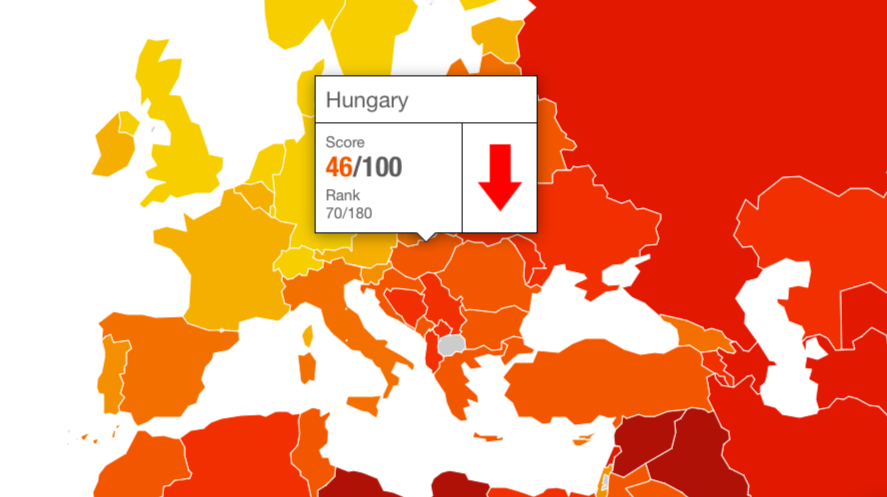Hungary listed as the second most corrupt country in the EU

Change language:
Corruption has become part of the system, not a side effect of it, according to Transparency International’s announcement. It also reveals that 20 per cent of EU-funded public procurement money went to Lőrincz Mészáros’s companies.
Transparency International has revealed its Corruption Perception Index 2019, reported hvg. Hungary is tied with Romania for the second most corrupted nation, while Bulgaria takes first place.

From the 180 countries examined globally, Hungary is ranked at number 70. The country got 44 points out of 100 – in which 100 means a perfectly corruption-free country –, while in 2018, it got 46 points, meaning the situation worsened in the past year. However, since 2012, Hungary has dropped back not only two but 24 places.
József Péter Martin, the managing director of TI Hungary, said while presenting the report that corruption has become a central element in the past decade. The state takes fortunes by certain groups through the law or purchases and gives it to other groups.
“The money of taxpayers is turned into private wealth through public money pumps by violating the rule of law,” the report states.
On a positive note, the report also says that the autonomy of the courts remains intact, and at least it cannot be said that the prosecution allows the perpetrators of cases that may be sensitive for the government go free.







I don’t understand why EU sends any money (from the beginning) without any legal confirmation of how they did spend it.. Most of it stolen..